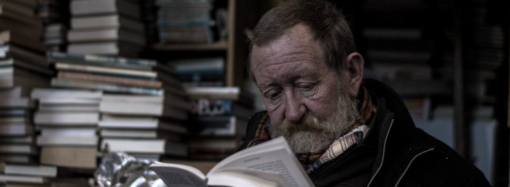The degradation of human life in major American cities astonishes and alarms. In San Francisco, the homeless defecate in the streets and supermarkets. In New York, violent attacks on orthodox Jews by a small minority of black anti-Semites seem to be almost daily occurrences.
What follows is yet another astonishing story. It involves a major corporation, not “progressive” government officials, placing a misguided policy above the safety of its customers.
Recently a New York Post photo editor, dining at a Whole Foods in Manhattan, witnessed a homeless man repeatedly sticking his hands in the Whole Foods hot bar:
A drooling and pungent homeless man made double-dipping look like child’s play at a Midtown Whole Foods, grabbing from the hot food bar with his bare hands to stuff his bearded face — as employees just chuckled and said they were powerless to stop him.
“Powerless to stop him?” Hardly. The editor photographed two security guards in the store doing nothing. One employee initially said, “Oh, he comes here all the time. We can’t do anything about it, we were told.”
As for Whole Foods’ paying customers, they are placing their health in jeopardy. In California, medieval diseases such as typhus are infecting the homeless.
One store supervisor said, “We address the situation and throw the tray out and put a fresh one in the bar.”
Yet, “the suddenly unsavory meals weren’t tossed by the time The Post left the store Sunday.” Thus, unsuspecting customers may have paid for and consumed grossly contaminated food.
The store manager refused to comment, and Whole Food’s corporate office didn’t return the reporter’s phone call.
A map shows 161 places an individual can get a free meal in Manhattan. This man was in no danger of starving. He preferred “no rules” Whole Foods to the regimen of a soup kitchen, church, or shelter where his reckless endangerment of others would not be tolerated.
At Whole Foods, employees “looked on, smiling and laughing — while doing nothing to stop the pig-out.” In reality, the employees were mocking not only a disturbed human being but also the safety of their customers. Putting one’s hands in the hot bar at Whole Foods is not a human right.
Theodore Dalrymple, a doctor, had a long career serving the English underclass. In his many books, he repeatedly showed that treating a person as a victim and removing the “burden of responsibility” from them harms the coddled person. Treating this homeless man as someone incapable of self-control erodes his path to a better life, for regaining self-control is an essential step in this path.
Perhaps Whole Foods fears a backlash from a “woke” social media mob, should a policy to restrain homeless food thieves be enforced. To be accused, as Dalrymple puts it, of “hardness of heart or outright cruelty” quickly places a corporation in the “woke” penalty box.
Whole Foods management is as morally bankrupt as the homeless thief. Dalrymple points out, “It takes two to be corrupt.”
He explains, in his book Spoilt Rotten: The Toxic Cult of Sentimentality, that to excuse the type of behavior witnessed at Whole Foods is not compassionate; it is callous:
The avoidance of moral judgment is in any case the mask of indifference and callousness. It is a psychological impossibility to compassionate equally with all the people in the world who suffer, and the demand that we do so is in effect the demand that we do so with none.
Rather than allowing one man to spoil vast quantities of food, Whole Foods could feed many by donating food to homeless shelters. To demand that the public allow the homeless to run wild is a demand that others suffer, including law-abiding homeless persons.
How did we arrive at such a state of affairs? Dalrymple contrasts the Christian view of the self-responsibility of individuals with the Romantic view of victimhood:
The Christian view, that man was born imperfect but could and should strive in person towards perfection, was first challenged and then replaced by the Romantic view that mankind was born naturally good but was corrupted into badness by living in a bad society. Thus the exhibition of vice became evidence of having been treated badly. What had been deemed moral defect became victimhood whether conscious or not; and since mankind was born happy as well as good, unhappiness and suffering were likewise evidence of bad treatment and victimhood.
In short, “For the [Romantic] sentimentalist… there is no such thing as a criminal, only an environment that has let him down.”
It is self-evident that those who defecate in supermarkets or stick their hands in supermarket hot bars are not victims “who need rescue from injustice”; they are people making depraved choices.
To laugh at them or coddle them, rather than hold them accountable, is to attack their humanity. They are capable of choosing a better life for themselves. Personal responsibility, not social engineering, is the medicine needed.
—
[Image Credit: Flickr-Harry Lawford, CC BY 2.0]
















Leave a Comment
Your email address will not be published. Required fields are marked with *